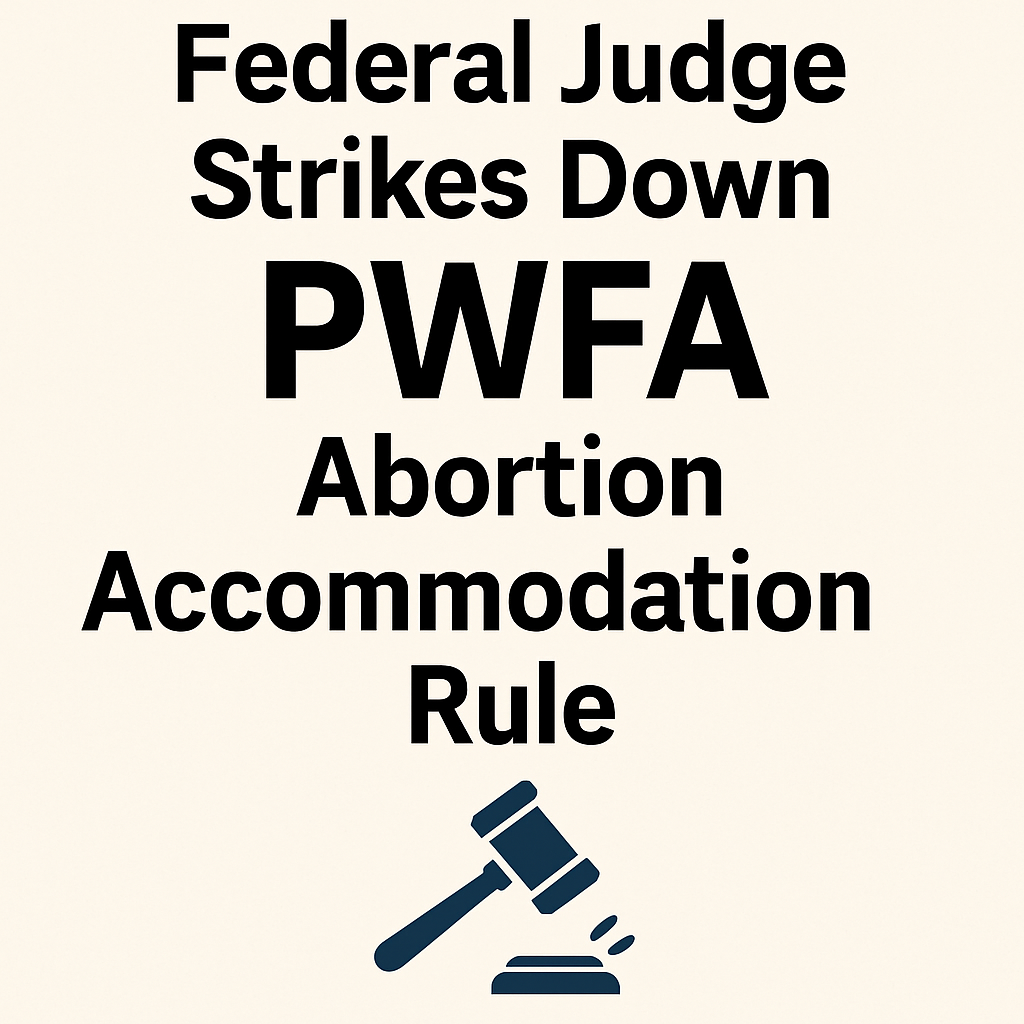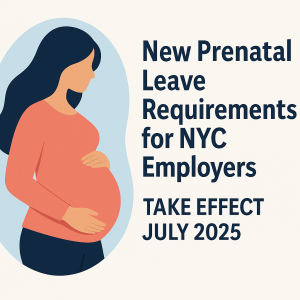Federal Court Strikes Down EEOC Rule on Elective Abortion Accommodations Under the PWFA
May 28, 2025
On May 21, 2025, a federal court in Louisiana vacated a portion of the Equal Employment Opportunity Commission’s (EEOC) final rule under the Pregnant Workers Fairness Act (PWFA) that required employers to accommodate elective abortions. The court held that the EEOC had exceeded its statutory authority, rewriting the scope of the PWFA without Congressional approval.
What the Ruling Changes
The court’s decision removes “elective abortion” from the EEOC’s regulatory definition of a “pregnancy-related medical condition,” meaning employers are no longer required under federal law to provide accommodations (like time off or schedule adjustments) for elective abortions not tied to a pregnancy-related medical complication. This does not impact state or local laws which require employers to provide these accommodations.
This ruling does not affect:
- Title VII’s existing prohibition on discrimination based on an employee’s decision to have an abortion.
- The PWFA’s coverage of pregnancy, childbirth, and related medical conditions when medically necessary.
- Any state or local laws that offer broader protections.
The court emphasized that Congress passed the PWFA after Dobbs v. Jackson Women’s Health Organization—the Supreme Court decision that overturned Roe v. Wade—and chose not to reference abortion in the statute. According to the court, if Congress intended to include abortion, it would have done so explicitly.
What Employers Should Do Now
- Update your PWFA compliance policies to reflect the narrowed federal scope.
- Recognize that state laws may still impose abortion-related accommodation requirements.
- Ensure your leave and accommodation policies distinguish between elective and medically necessary procedures.
This ruling narrows employer obligations under federal law, but multi-state employers must continue to monitor overlapping local laws and litigation risk.
For help aligning your policies with current federal and state requirements, contact Sheryl Galler at sgaller@booklawllp.com or Chaim Book at cbook@booklawllp.com.


